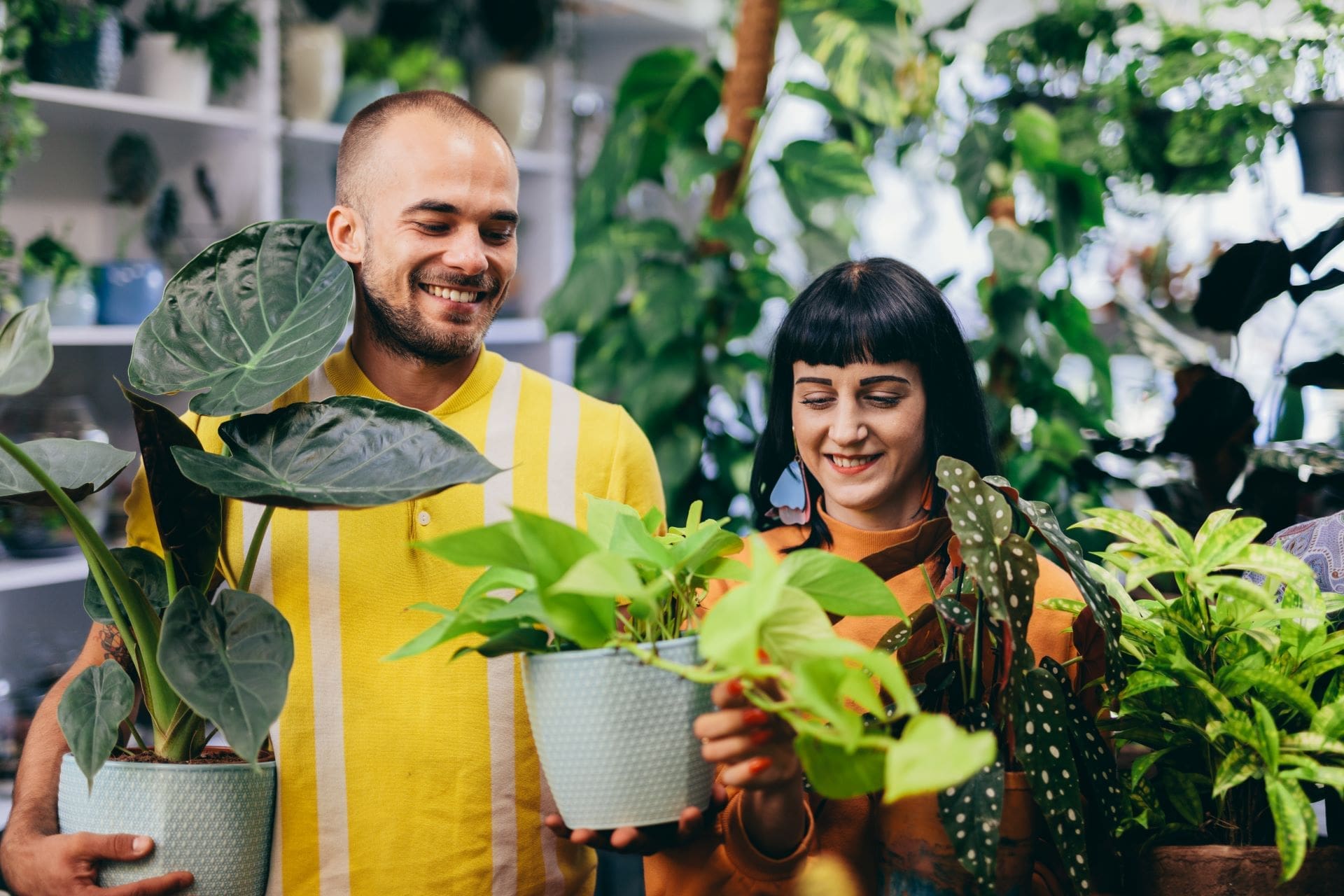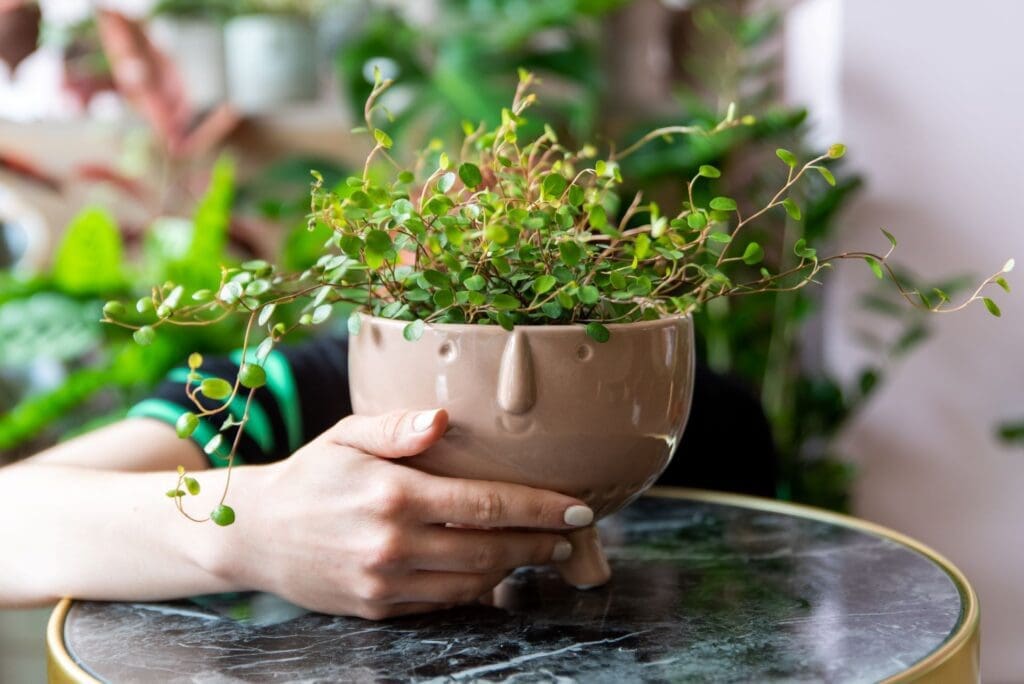

Why You Should Talk to Your Plants: Lessons in Growth, Patience, and Unconditional Love. The daily lives for many are filled with the hustle and bustle of simply making it through the day. We are surrounded by screens and endless to-do lists, it’s easy to feel disconnected – not just from others, but from the natural world and, perhaps most importantly, from ourselves. Yet, within our very homes, often basking in a sunbeam or tucked into a cozy corner, lies a silent, verdant community just waiting for us to engage. I’m talking, of course, about our houseplants.
Now, you might be chuckling to yourself. Talking to plants? Isn’t that something only eccentric gardeners do? Perhaps it was once considered a whimsical notion, but delve a little deeper, and you’ll discover a wealth of fascinating insights that suggest there’s far more to this practice than meets the eye. Engaging with our plants, even through simple conversation, can cultivate profound lessons in growth, patience, and the beautiful, unconditional nature of connection. It can become a powerful, albeit unexpected, avenue for self-nurturing and a reminder of the simple joys life offers.
The Whispers of Growth: Nurturing Life, Inside and Out
Think about it: what do you do when you want something to thrive? You nurture it. You provide the necessary elements for its survival and growth. With plants, this means water, sunlight, and the right kind of soil. But what if I told you that your voice, your presence, can also play a role?
While the scientific evidence directly linking vocalizations to significant plant growth is still evolving and sometimes debated (some early studies showed potential positive effects, while others haven’t replicated those findings consistently), the act of talking to your plants often translates into more attentive care. When you make a conscious effort to interact with your green companions, you’re more likely to observe them closely. You’ll notice a droopy leaf that signals a need for water, a yellowing edge that might indicate overwatering or a nutrient deficiency, or the early signs of a pest infestation.
This heightened awareness fosters a deeper understanding of your plant’s individual needs. Just like us, each plant species, and even individual plants within the same species, has its own unique preferences. By spending time with them, by verbally acknowledging their existence, you’re essentially creating a ritual of observation. This ritual, in turn, allows you to provide more tailored care, creating an environment where your plants can flourish.
Beyond the practical benefits of increased attentiveness, there’s a psychological element at play. The act of nurturing another living being can be incredibly rewarding. It taps into our innate human desire to care for and protect. As you watch your plants respond to your care – unfurling new leaves, blooming with vibrant colors, reaching towards the light – you experience a sense of accomplishment and connection. This positive feedback loop can boost your mood, reduce stress, and foster a feeling of purpose. In essence, by nurturing your plants, you are inadvertently nurturing yourself.

The Slow Dance of Patience: Cultivating Inner Stillness
In our fast-paced world, where instant gratification is often the norm, plants offer a gentle reminder of the beauty and necessity of patience. They operate on their own timeline, unfurling a new leaf or a delicate bloom in their own sweet time. There’s no rushing the process, no demanding immediate results.
Talking to your plants can become a mindful practice, a moment to slow down and simply be present with another living organism. As you speak to them, you’re likely to be still, your attention focused on their form, their texture, perhaps even the subtle changes they’ve undergone since your last interaction. This quiet observation can be a powerful antidote to the constant stimulation of modern life. It allows you to step away from the digital noise and reconnect with the present moment.
Caring for plants teaches us the rhythm of nature, the cyclical patterns of growth, dormancy, and renewal. We learn that patience is not passive waiting, but an active engagement with the process, appreciating each small step along the way. Just as a seed needs time and the right conditions to sprout, grow, and eventually blossom, so too do our own aspirations and personal growth require time, effort, and unwavering patience.
The lessons we learn from the slow, steady growth of our plants can translate into other areas of our lives. We might find ourselves more understanding of the time it takes to achieve our goals, more accepting of setbacks as part of the process, and more appreciative of the small victories along the way. Our leafy companions become silent mentors in the art of patience, reminding us that true growth, whether in the plant world or our own lives, is a marathon, not a sprint.
The Unconditional Embrace of Green: Finding Connection and Comfort
Perhaps the most profound lesson our plants offer is that of unconditional love and connection. They don’t judge us, they don’t demand anything from us other than basic care, and they offer their silent beauty in return. In a world where human relationships can be complex and sometimes fraught with expectations, the simplicity of our connection with plants can be incredibly comforting.
Talking to your plants can humanize this connection. It acknowledges them as living beings, even if they communicate in a way that’s different from our own. It’s an act of extending kindness and attention, a one-way conversation that can surprisingly feel quite reciprocal. Many plant owners report feeling a sense of companionship with their green charges, especially those who live alone or spend a lot of time at home.
Research has explored the therapeutic benefits of interacting with nature and plants. Studies have shown that being around greenery can reduce stress levels, lower blood pressure, and improve overall mood. The simple act of tending to a plant, of touching its leaves, of watering its roots, can be grounding and calming.
Think of your plants as silent listeners, non-judgmental confidantes. You can share your joys, your frustrations, even your silly thoughts, without fear of criticism or interruption. This simple act of vocalization can be surprisingly cathartic. It allows you to process your emotions, to give voice to your inner world in a safe and supportive environment.
Moreover, caring for plants fosters a sense of responsibility and connection to something larger than ourselves. We become stewards of these living beings, reliant on us for their well-being. This sense of purpose can be incredibly fulfilling and can combat feelings of loneliness or isolation. Our plants, in their quiet way, remind us that we are part of a web of life, interconnected with the natural world in ways we may not always consciously realize.
The Science Behind the Connection (and Why It Matters)
While the direct impact of talking on plant growth is still debated, the broader benefits of human-plant interaction are increasingly supported by scientific research. Horticulture therapy, for instance, is a well-established practice that utilizes plants and gardening activities to improve mental and physical health. Studies have shown its effectiveness in reducing symptoms of anxiety, depression, and stress, as well as improving cognitive function and social skills.
Even in less formal settings, the presence of plants has been linked to positive outcomes. Research suggests that indoor plants can improve air quality (though the extent of this effect in a typical home environment is sometimes debated), increase feelings of well-being, and even enhance productivity.
The act of caring for another living being, whether it’s a plant or a pet, triggers the release of oxytocin, often referred to as the “love hormone.” Oxytocin promotes feelings of bonding, trust, and relaxation. This physiological response underscores the deep-seated human need for connection and the rewarding nature of nurturing other life forms.
Therefore, even if your words aren’t directly causing your Fiddle Leaf Fig to sprout a new leaf, the act of talking to it is likely contributing to your own well-being. It’s a manifestation of your engagement with the natural world, a small ritual that fosters mindfulness, patience, and a sense of connection.
Embracing the Green Conversation: Simple Steps to Connect
So, how do you start talking to your plants? It’s simpler than you might think. Here are a few gentle suggestions:
The key is to approach it with an open heart and without judgment. There’s no right or wrong way to talk to your plants. It’s about creating a connection, fostering a sense of care, and enjoying the simple act of engaging with the green life that shares your space.
The Blooming Benefits: Cultivating a Richer Inner Life
Talking to your plants may seem like a small, perhaps even quirky, habit. But within this simple act lies a wealth of lessons and benefits. It’s an opportunity to cultivate patience in a world that demands instant results, to nurture a sense of responsibility and connection, and to experience the unconditional embrace of the natural world within the comfort of your own home.
Our houseplants are more than just decorative objects; they are living reminders of the beauty and resilience of nature. By engaging with them, by offering our attention and even our words, we tap into something profound and deeply human. We nurture not only their growth but also our own inner landscape, fostering a richer, more mindful, and more connected life. So go ahead, have a chat with your leafy companions. You might be surprised at the wisdom and comfort they silently offer in return. They are, after all, witnesses to our lives, silent companions on our journey, and a gentle reminder that even in the smallest of connections, profound lessons can bloom.